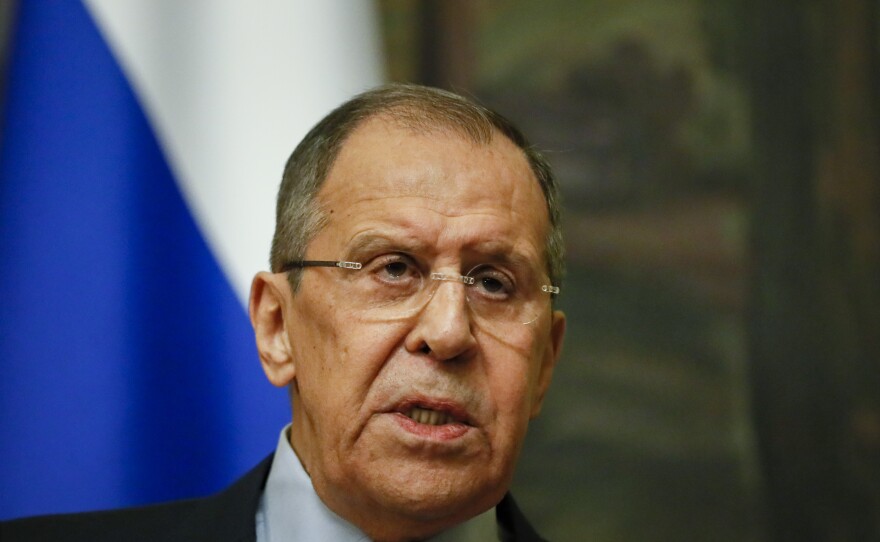Russia retaliated Friday over a new round of U.S. sanctions imposed a day ago by the Biden administration over the SolarWinds cyberattack and the Kremlin's election meddling.
Foreign Minister Sergey Lavrov said 10 U.S. diplomats will be expelled from Russia, mirroring the 10 Russian diplomats ordered to leave the U.S. on Thursday. Moscow will also add eight U.S. officials to its sanctions list and will restrict the activities of U.S. nongovernmental organizations, or NGOs, operating in Russia.
"Washington should realize that it will have to pay a price for the degradation of bilateral ties," he said, indicating that Moscow was prepared, if necessary, to move to "painful measures" against U.S. business interests in Russia.
The Kremlin has denied interfering in U.S. presidential elections or of any involvement in the SolarWind hack.
Lavrov suggested that the U.S. ambassador to Russia, John Sullivan, follow the example of his Russian counterpart, Anatoly Antonov, and return home for consultations.
The tit-for-tat exchange of sanctions follows President Biden's executive order on Thursday of new economic sanctions aimed at Moscow.
The latest sanctions from the White House came in response to findings by the U.S. intelligence community that Kremlin-linked actors were responsible for the cyberattack on U.S. technology firm SolarWinds. That attack resulted in the hackers' code being unwittingly distributed by SolarWinds via software updates to its clients worldwide, ultimately reaching U.S. government networks.
Thursday's sanctions were also tied to what the U.S. intelligence community believes was Russia's interference in the 2020 U.S. presidential election after similar findings on the 2016 race.
Biden said Thursday that the U.S. isn't pushing for "a cycle of escalation and conflict" with Russia but instead wants both nations to manage tensions and work together when needed.
"My bottom line is this, where it is in the interest of the United States to work with Russia, we should and we will. If Russia seeks to violate the interests of the United States, we will respond," Biden said. "We will always stand in defense of our country, our institutions, our people and our allies."
The White House also reiterated that it is open to a summit with Russian President Vladimir Putin.
Despite the increased tensions between the two countries, Putin's spokesman, Dmitry Peskov, said Friday it was "good" that Biden wanted a dialogue, even as he criticized fresh U.S. sanctions.
Peskov said Putin "has repeatedly said that we are ready to develop our dialogue to the degree that our counterparts are ready for this," he said.
"It is indeed good that the points of view of the two heads of state coincide on this," Peskov said.
Copyright 2021 NPR. To see more, visit https://www.npr.org.






